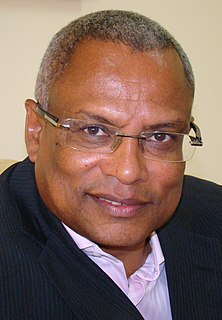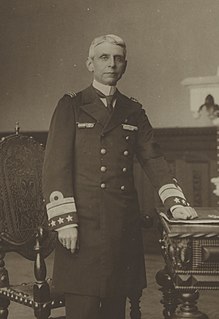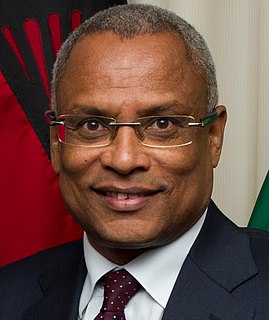
José Maria Pereira Neves is a Cape Verdean politician who is currently the president of Cape Verde, having previously served as the Prime Minister of Cape Verde from 2001 to 2016. He is a member of the African Party for the Independence of Cape Verde (PAICV). In the 2021 presidential election, he was elected with 51.7% of votes, beating his nearest rival Carlos Veiga who got 42.4% of the total votes.

Francisco José Pereira Pinto Balsemão is a Portuguese businessman, former journalist and retired politician, who served as Prime Minister of Portugal, from 1981 to 1983.

Marcelo Nuno Duarte Rebelo de Sousa is a Portuguese politician and academic. He is the 20th and current president of Portugal, since 9 March 2016. He is a member of the Social Democratic Party, though he suspended his party membership for the duration of his presidency. Rebelo de Sousa has previously served as a government minister, parliamentarian in the Assembly of the Portuguese Republic, legal scholar, journalist, political analyst, law professor, and pundit.

Inconfidência Mineira was an unsuccessful separatist movement in Brazil in 1789. It was the result of a confluence of external and internal causes in what was then colonial Brazil. The external inspiration was the independence of thirteen British colonies in North America following the American Revolutionary War, a development that impressed the intellectual elite of particularly the captaincy of Minas Gerais. The main internal cause of the conspiracy was the decline of gold mining in that captaincy. As gold became less plentiful, the region's gold miners faced increasing difficulties in fulfilling tax obligations to the crown. When the captaincy could not satisfy the royal demand for gold, it was burdened with an additional tax on gold, called derrama.

João do Canto e Castro da Silva Antunes, commonly known simply as João do Canto e Castro was a Portuguese Navy officer and the fifth President of Portugal during the First Portuguese Republic. He also briefly served as 67th Prime Minister of Portugal.

The 5 October 1910 revolution was the overthrow of the centuries-old Portuguese monarchy and its replacement by the First Portuguese Republic. It was the result of a coup d'état organized by the Portuguese Republican Party.

Francisco António da Veiga Beirão, commonly known as Francisco da Veiga Beirão, or Veiga Beirão, was a Portuguese politician of the late period of the Constitutional Monarchy. He served as President of the Ministry, being the second last before the October 5 republican coup d'état that established the Portuguese First Republic. He was a professor at the Industrial Institute and president of Lawyers Association of Lisbon. He was also a member of the Royal Academy of Sciences and of the Institut de Droit International and the Real Academía de Jurisprudencia y Legislación de Madrid. He had a law degree, from the University of Coimbra.
Veiga may be used as a place name or surname. It may refer to:

Katia Guerreiro is a South African-born Portuguese fado singer, who has released eight albums and has received several awards, including Order of Arts and Letters, Chevalier rank, from the French government and the Order of Prince Henry from the President of Portugal.
Manuel António Vassalo e Silva was an officer of the Portuguese Army and an overseas administrator. He was the 128th and the last Governor-General of Portuguese India.
António Jorge Martins da Mota Veiga was a Portuguese politician and former Minister and law professor.
Francisco José Caeiro was a Portuguese politician and former Minister and law professor.

José Maria de Alpoim Cerqueira Borges Cabral was a politician, member of the Progressive Party of Portugal, and later the Republican Party of Portugal, who held various roles during the last years of the constitutional monarchy in Portugal. He was a deputy in the Cortes, Counsel and Peer of the Realm, as well as holding positions in the Ministry of Justice, as well as roles in the First Portuguese Republic.
Rádio Mayrink Veiga was a radio station in Rio de Janeiro, Brazil. It began broadcasting on January 21, 1926, and was closed in 1965 by the military dictatorship which ruled Brazil at that time. Rádio Mayrink Veiga was a key part of the Radio Era in Brazil. It was the second station which established advertising and entertainment broadcasts in Brazil, after Rádio Record, from São Paulo. Radio Mayrink Veiga was one of the most important stations operating in Brazil for the next three decades, and created many stars. Carmen Miranda and her sister Aurora had their debut on Radio Mayrink Veiga, as did the Pagã Sisters, Elvira and Rosina. In 1962, Rádio Mayrink Veiga participated in the protest broadcasts of the Cadeia da Legalidade, a network of radio stations organized to oppose the military dictatorship and support democracy. Ana Montenegro was one of the featured broadcasters on the station from 1959 to 1963. The station's participation was the pretext for its permanent closure by the military regime in 1965.

Sebastião Custódio de Sousa Teles, also known as Sebastião Teles, Sousa Teles, or in contemporary Portuguese as Sousa Telles, was a Portuguese politician and military officer. After a career in military logistics and education, he served multiple times as Minister of War, and briefly as President of the Council of Ministers from 11 April to 14 May 1909 during the penultimate year of the Portuguese constitutional monarchy.

Raphael Cavalcante Veiga, known as Raphael Veiga, is a Brazilian footballer who plays for Palmeiras as an attacking midfielder.
Evelise Maria Tavares da Veiga is a Portuguese long jumper who also competes in triple jump events. She won two silver medals at the 2019 Summer Universiade in Naples, Italy.

Presidential elections were held in Cape Verde on 17 October 2021. The result was a victory for José Maria Neves of the opposition African Party for the Independence of Cape Verde (PAICV), who received 51.8% of the vote.

The Brazilian Patrianovist Imperial Action, Pátria-Nova, or simply Patrianovism, was a monarchist organization that was present in many Brazilian states and that expressed the nationalist ideals of the 1920s and 1930s. Idealized by Arlindo Veiga dos Santos, it sought to establish a new organic monarchy in Brazil based on traditionalist policies since the now-defunct Empire of Brazil was born under liberalism.













